Explore this Italian garden inspired by Japanese wabi-sabi culture
Curator Federico Poletti has interviewed artist and philosopher Leonard Koren, and Ricky A Swaczy, founder of an Italian Japanese garden, to ponder the meaning of wabi-sabi
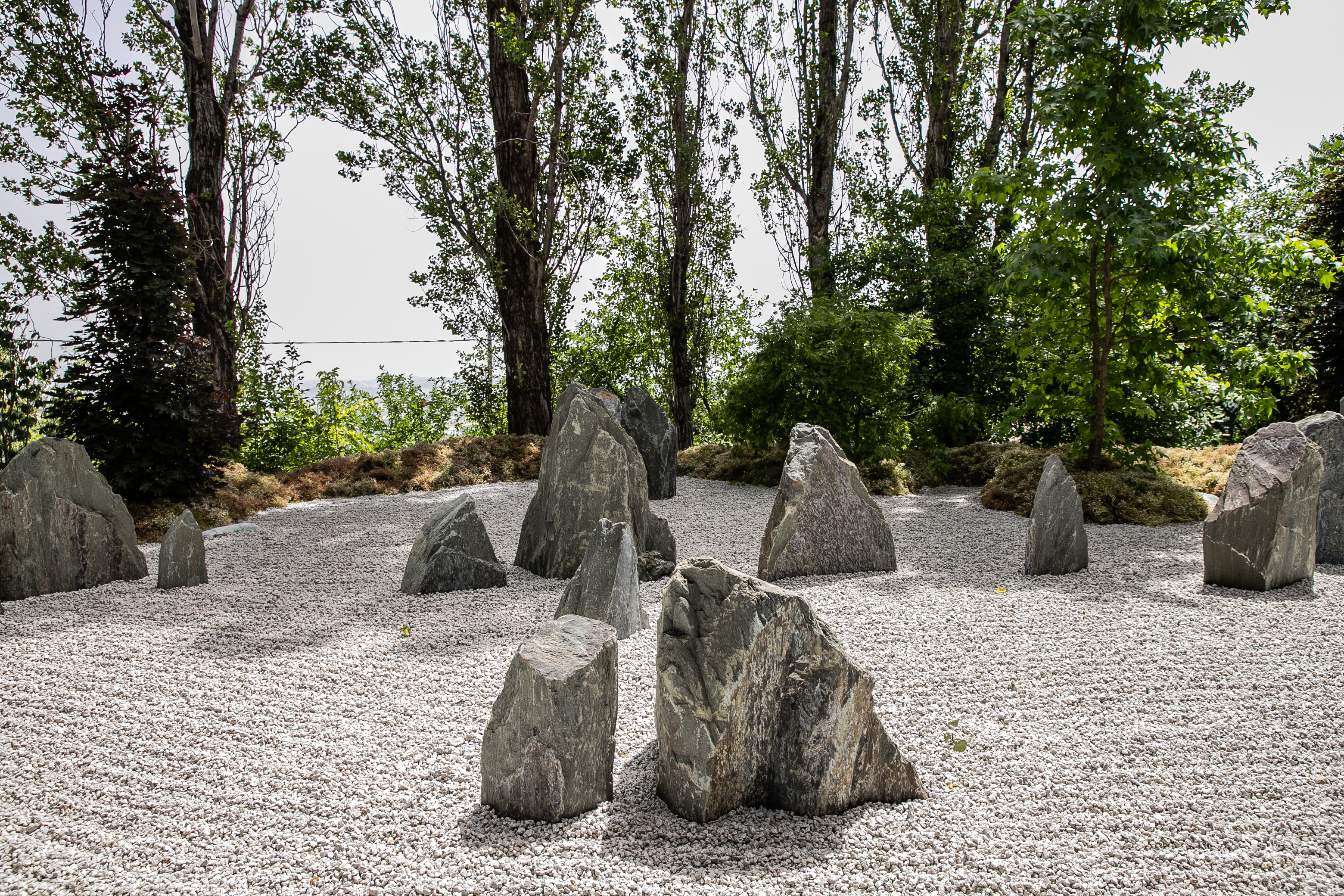
When writer and curator Federico Poletti met American artist Leonard Koren and Zen master Ricky A Swaczy, founder of Italian association Wabisabiculture, the encounter resulted in an intense dialogue about the meaning of wabi-sabi aesthetics, and how this theory has been applied to build a place worth visiting. The Wabisabiculture garden is a Japanese garden in the heart of Italy, a unique destination located in the Marche region; it’s a magic corner of Japan abroad, a cultural bridge between the two countries.
Explore the garden and watch our film, below.
Leonard Koren and wabi-sabi
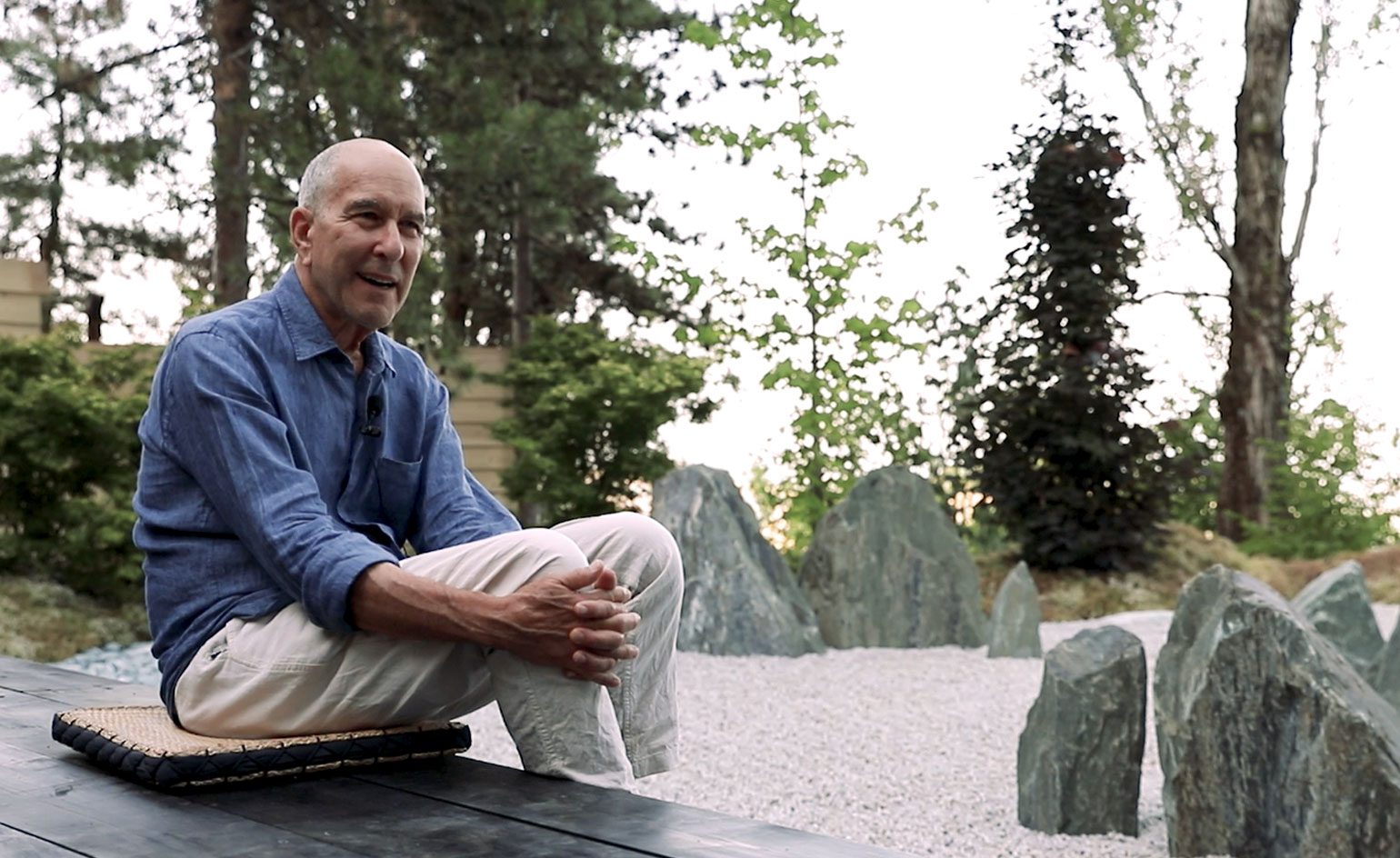
Leonard Koren sitting in the Wabisabiculture garden
‘Wabi-sabi can be described as the most conspicuous and characteristic feature of what we think of as traditional Japanese beauty,’ says Koren. ‘It occupies roughly the same position in the Japanese pantheon of aesthetic values as do the Greek ideals of beauty and perfection in the West.’
Says Poletti: ‘My journey into wabi-sabi started ten years ago, when I went to visit Wabisabiculture. I was initially shocked by the combination of Italian and Japanese aesthetics with rural, bio-architectural integration, consisting of stone and wood houses forming some sort of small hamle
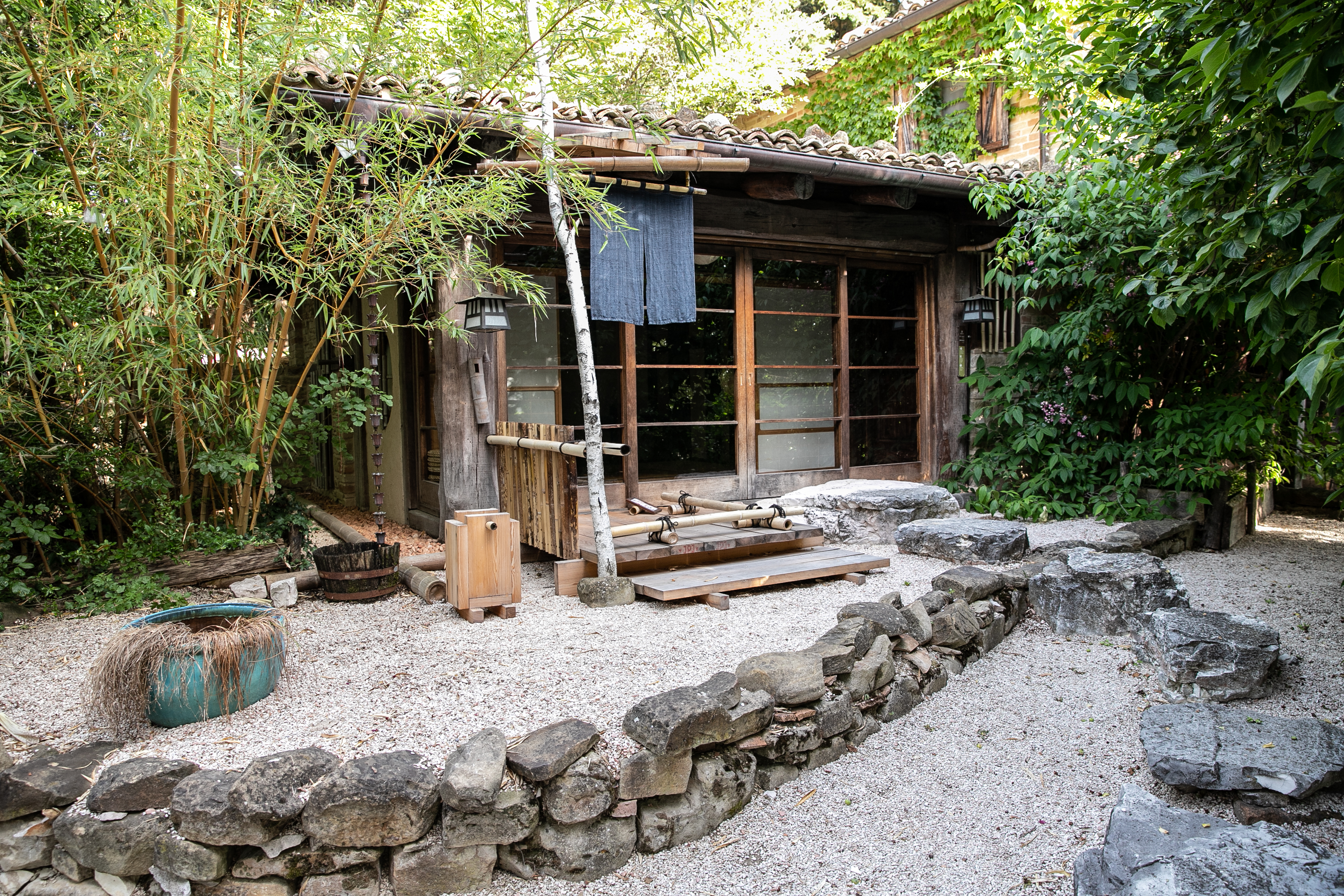
A house in the garden, which Poletti describes as ‘a fusion of a ryokan with an Italian rural country house’
Karesansui, the Japanese dry gardens, are traditionally made of granite. After in-depth study and several trips to Japan, for the Wabisabiculture garden, Swaczy selected black and white Italian Montorfano granite, representing yin and yang. The big monoliths are of serpentine stone, thought to drive away negativity, bring positive energy and help meditative concentration and healing. ‘The meditative experience in front of the garden implies a deep concentration and self care,’ says Poletti, who describes the place as a fusion of a Japanese ryokan (old country inn) with an Italian rural country house. The project – developed by Swaczy and Serenella Giorgetti – was inspired by Koren’s book, Wabi-Sabi: For Artists, Designers, Poets & Philosophers.
Wabi-sabi: Leonard Koren and Ricky A Swaczy in a magical Japanese garden
INFORMATION
Wallpaper* Newsletter
Receive our daily digest of inspiration, escapism and design stories from around the world direct to your inbox.
ADDRESS
Via Papa Giovanni XXIII, 23
San Ginesio 62026 (MC)
Italy
Maria Cristina Didero is an independent design curator, consultant and author, who has contributed to many publications over the years. Didero has consulted for companies such as Vitra, Fritz Hansen, Lexus, Fendi, Louis Vuitton, Valextra among others. Based in Milan, she works internationally, curating exhibitions for institutions: some of her most recent projects include Nendo: The Space in Between and The Conversation Show at the Holon Design Museum, Israel; FUN HOUSE by Snarkitecture at National Building Museum, Washington D.C.; SuperDesign a project about Italian radical design, NY; Vegan Design, or the Art of Reduction by Erez Nevi and The Fish and The Crowd by Carlo Massoud, Milan. In April 2022 she curated a Mathieu Lehanneur exhibition at the Triennale in Milan called The Inventory of Life, while in July she debuted a project at the MK&G in Hamburg titled Ask Me if I Believe in the Future, alongside a series of ongoing collaborations. She was appointed 2022 Curatorial Director of Design Miami/. She is currently preparing two projects for Milan Design Week 2023.
-
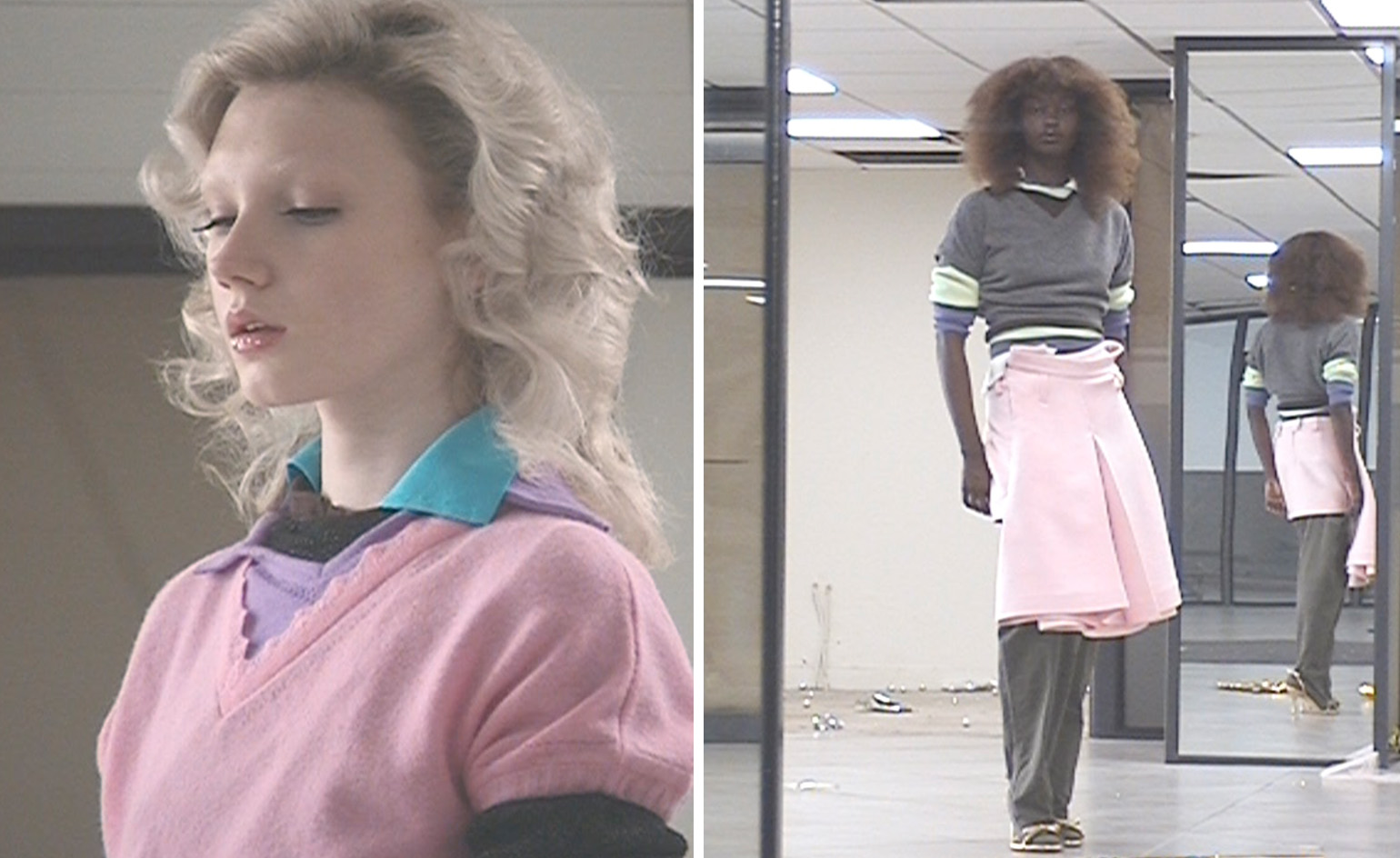 All-In is the Paris-based label making full-force fashion for main character dressing
All-In is the Paris-based label making full-force fashion for main character dressingPart of our monthly Uprising series, Wallpaper* meets Benjamin Barron and Bror August Vestbø of All-In, the LVMH Prize-nominated label which bases its collections on a riotous cast of characters – real and imagined
By Orla Brennan
-
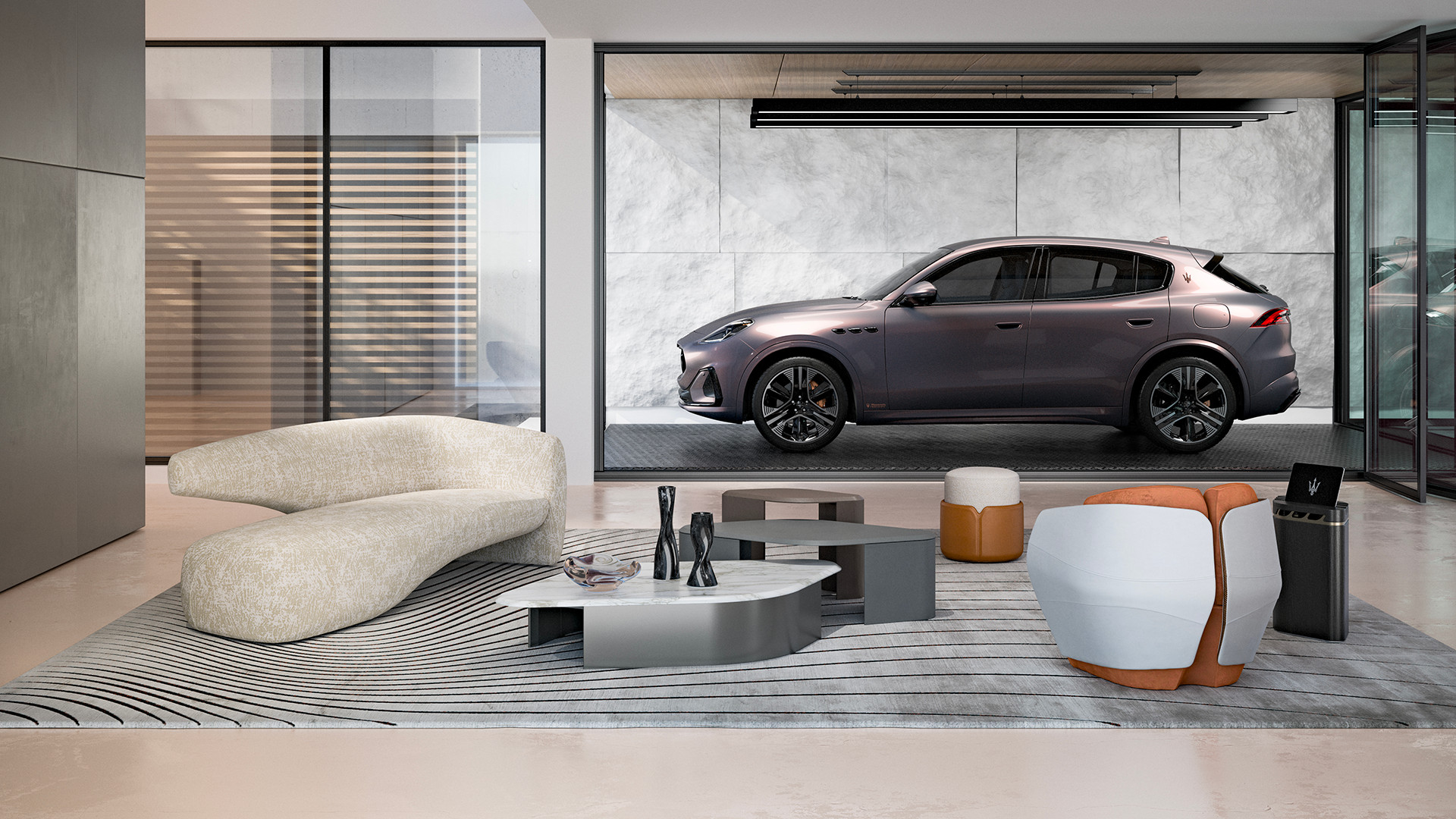 Maserati joins forces with Giorgetti for a turbo-charged relationship
Maserati joins forces with Giorgetti for a turbo-charged relationshipAnnouncing their marriage during Milan Design Week, the brands unveiled a collection, a car and a long term commitment
By Hugo Macdonald
-
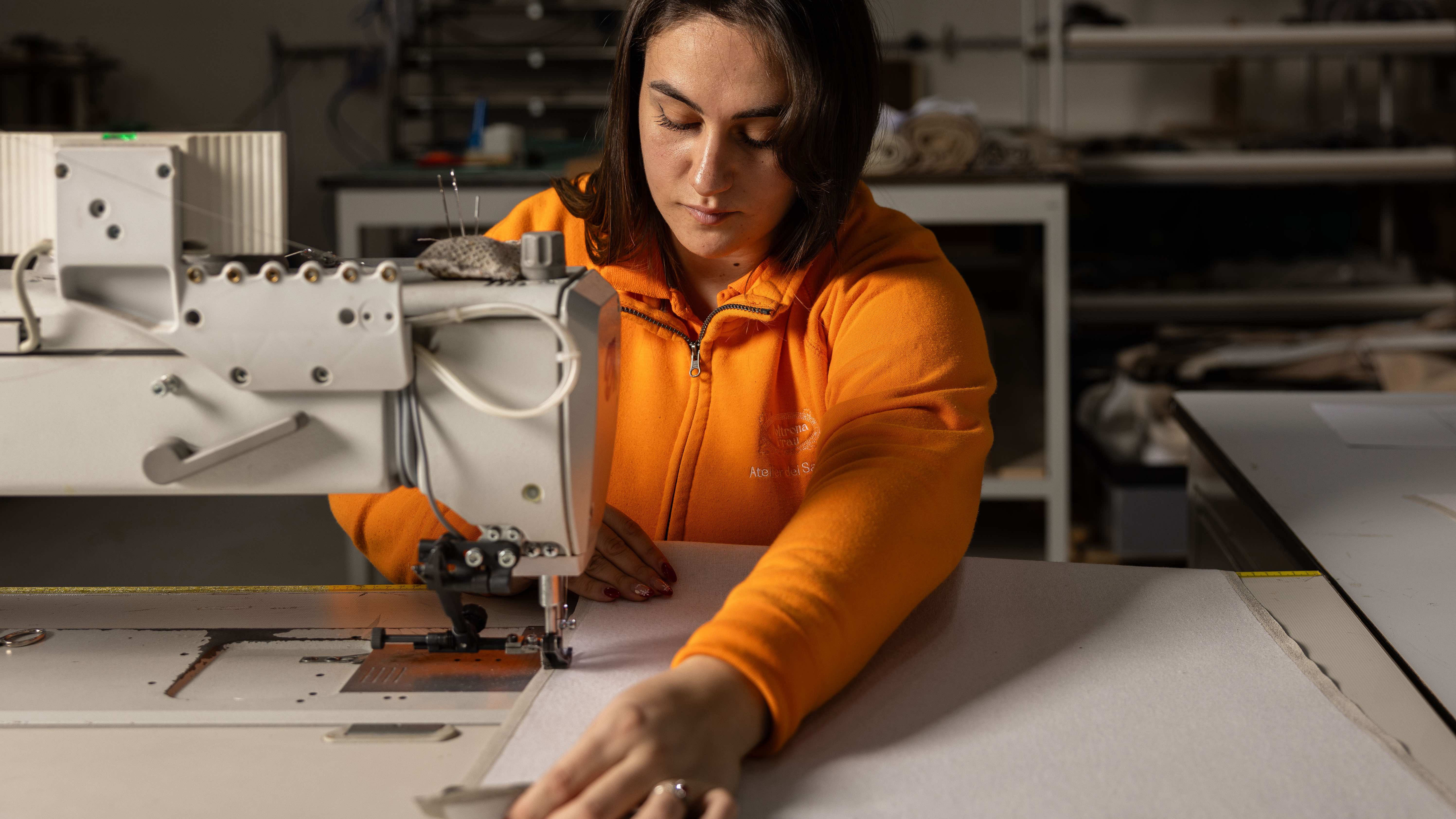 Through an innovative new training program, Poltrona Frau aims to safeguard Italian craft
Through an innovative new training program, Poltrona Frau aims to safeguard Italian craftThe heritage furniture manufacturer is training a new generation of leather artisans
By Cristina Kiran Piotti
-
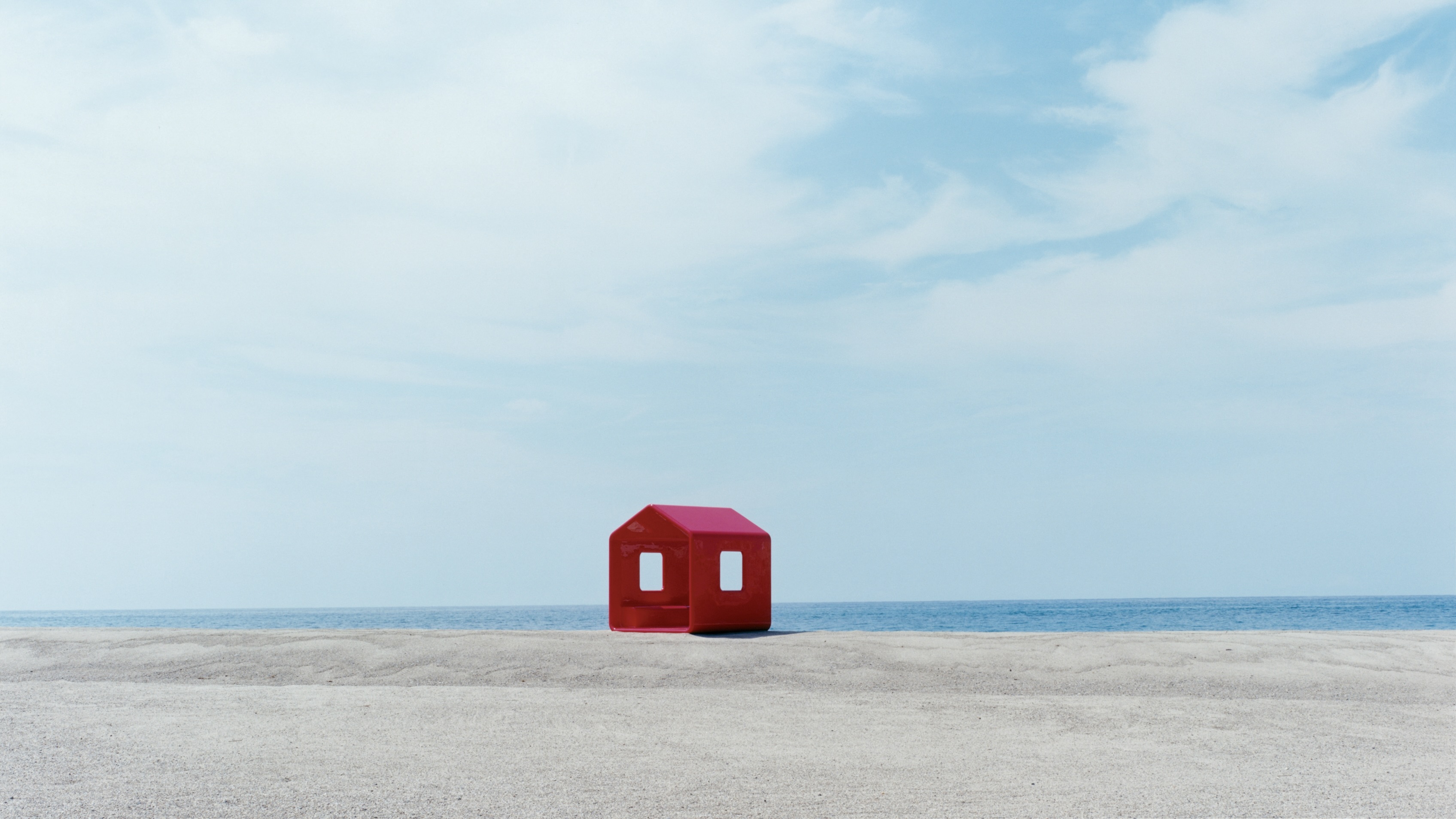 Naoto Fukasawa sparks children’s imaginations with play sculptures
Naoto Fukasawa sparks children’s imaginations with play sculpturesThe Japanese designer creates an intuitive series of bold play sculptures, designed to spark children’s desire to play without thinking
By Danielle Demetriou
-
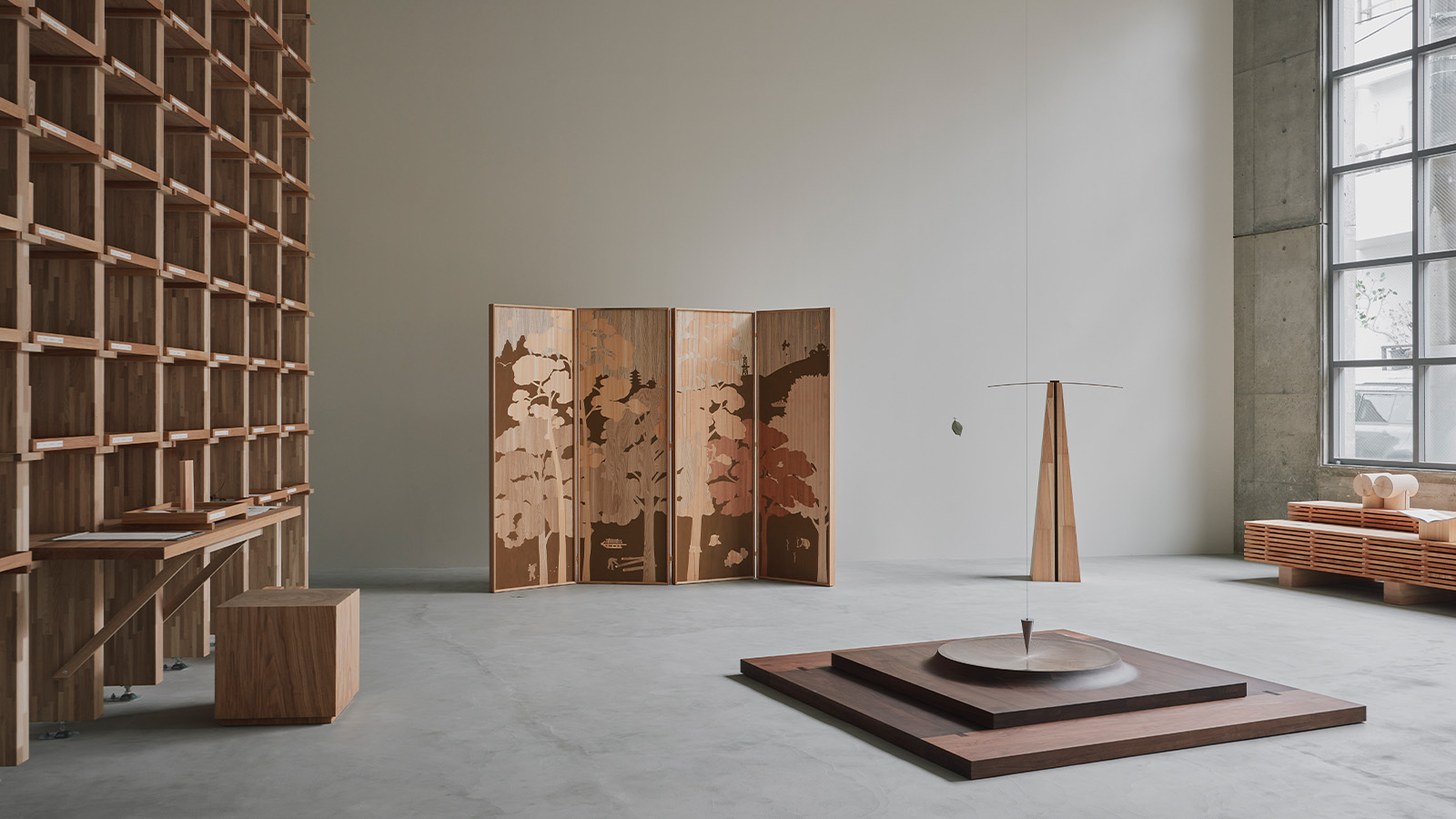 Time, beauty, history – all are written into trees in Karimoku Research Center's debut Tokyo exhibition
Time, beauty, history – all are written into trees in Karimoku Research Center's debut Tokyo exhibitionThe layered world of forests – and their evolving relationship with humans – is excavated and reimagined in 'The Age of Wood', a Tokyo exhibition at Karimoku Research Center
By Danielle Demetriou
-
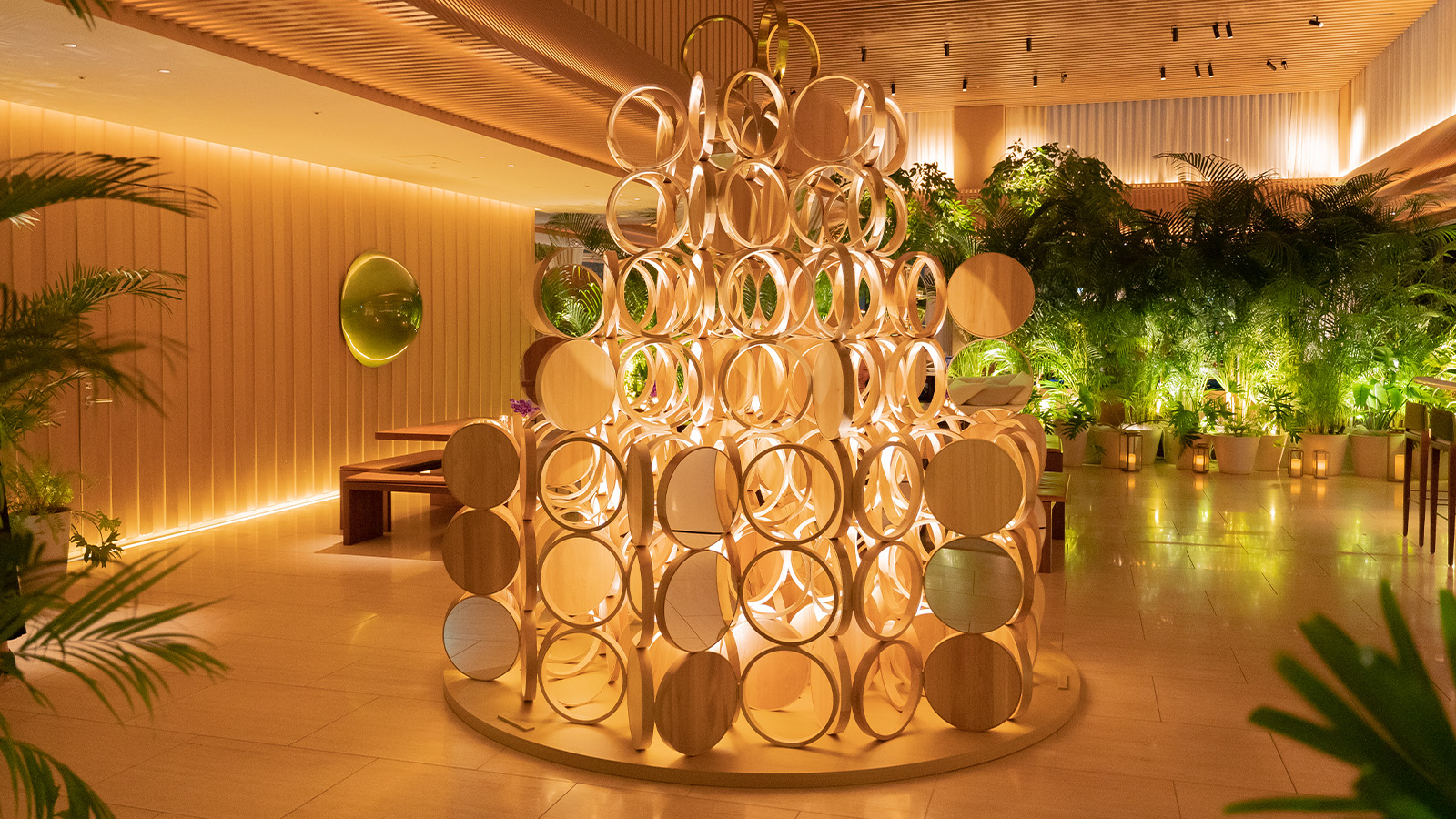 Minimal curves and skilled lines are the focal point of Kengo Kuma's Christmas trees
Minimal curves and skilled lines are the focal point of Kengo Kuma's Christmas treesKengo Kuma unveiled his two Christmas trees, each carefully designed to harmonise with their settings in two hotels he also designed: The Tokyo Edition, Toranomon and The Tokyo Edition, Ginza
By Danielle Demetriou
-
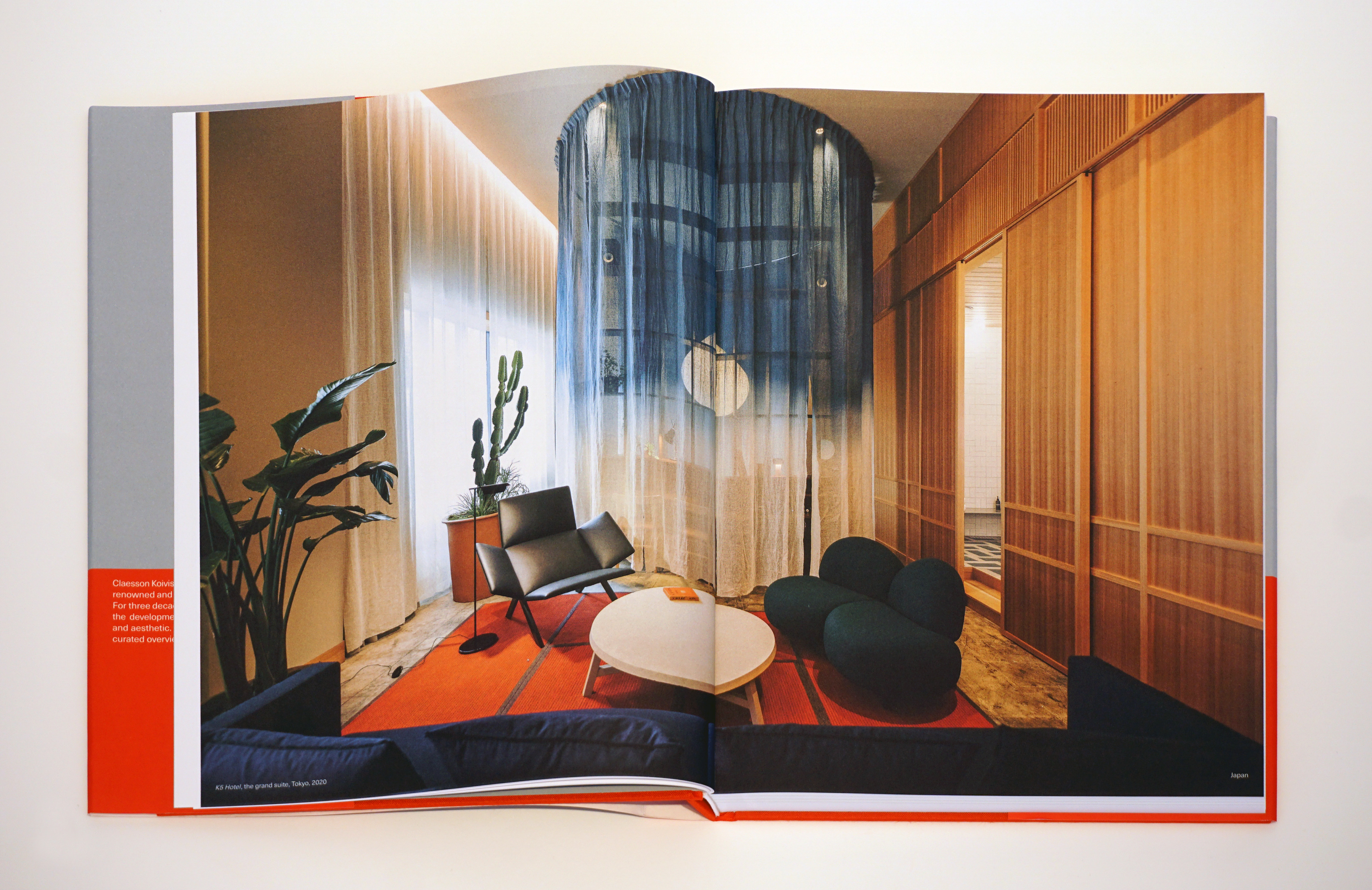 Claesson Koivisto Rune on 30 years of their often Japan-inspired designs, charted in a new book
Claesson Koivisto Rune on 30 years of their often Japan-inspired designs, charted in a new book‘Claesson Koivisto Rune: In Transit’ is a ‘round-the-world journey’ into the Swedish studio's projects. Here, the founders tell Wallpaper* about their fascination with Japan, and the concept of aimai
By Danielle Demetriou
-
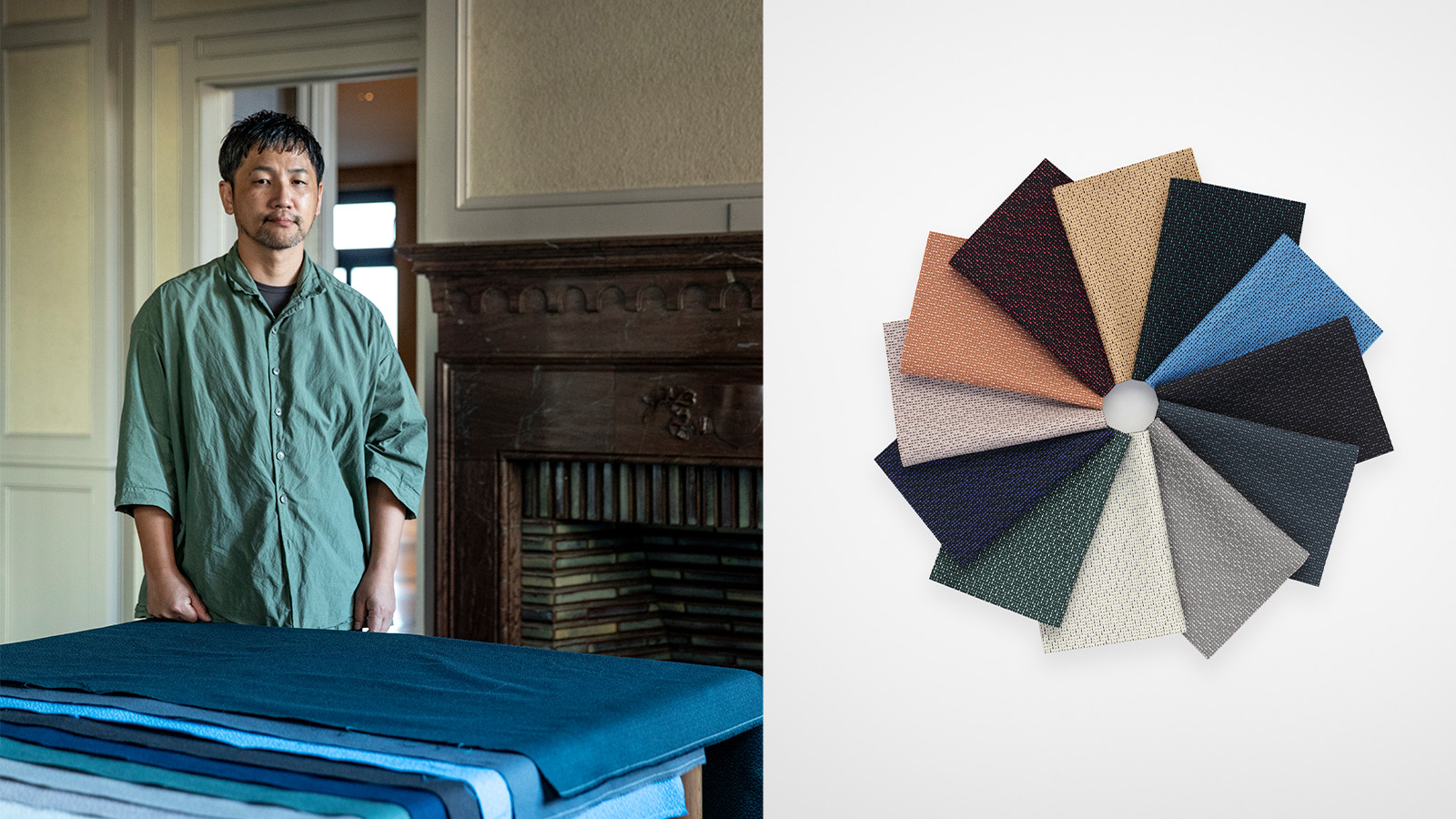 Teruhiro Yanagihara's new textile for Kvadrat boasts a rhythmic design reimagining Japanese handsewing techniques
Teruhiro Yanagihara's new textile for Kvadrat boasts a rhythmic design reimagining Japanese handsewing techniques‘Ame’ designed by Teruhiro Yanagihara for Danish brand Kvadrat is its first ‘textile-to-textile’ product, made entirely of polyester recycled from fabric waste. The Japanese designer tells us more
By Danielle Demetriou
-
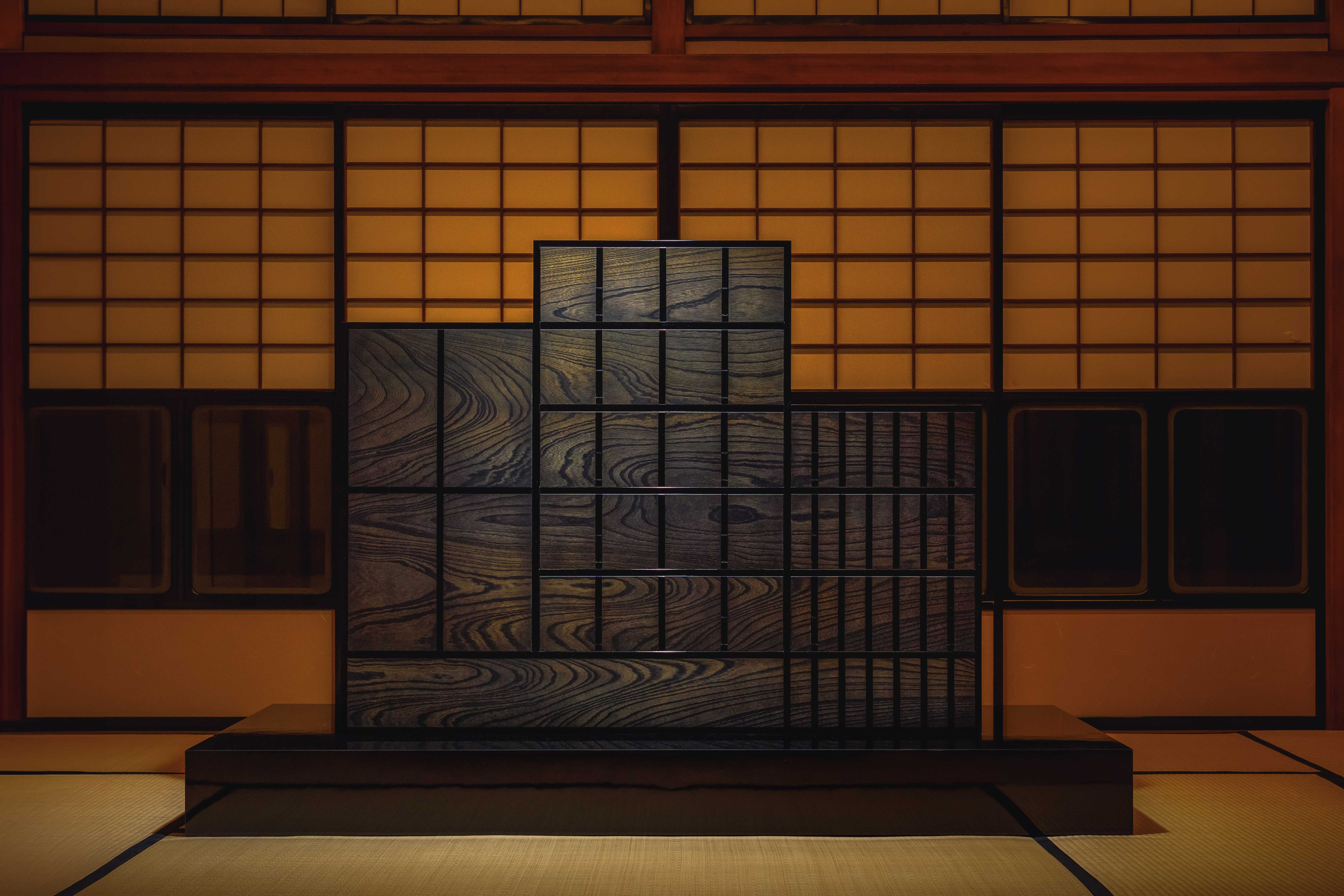 Craft x Tech elevates Japanese craftsmanship with progressive technology
Craft x Tech elevates Japanese craftsmanship with progressive technologyThe inaugural edition of Craft x Tech was presented in Tokyo this week, before making its first international stop at Design Miami Basel (11-16 June 2024)
By Danielle Demetriou
-
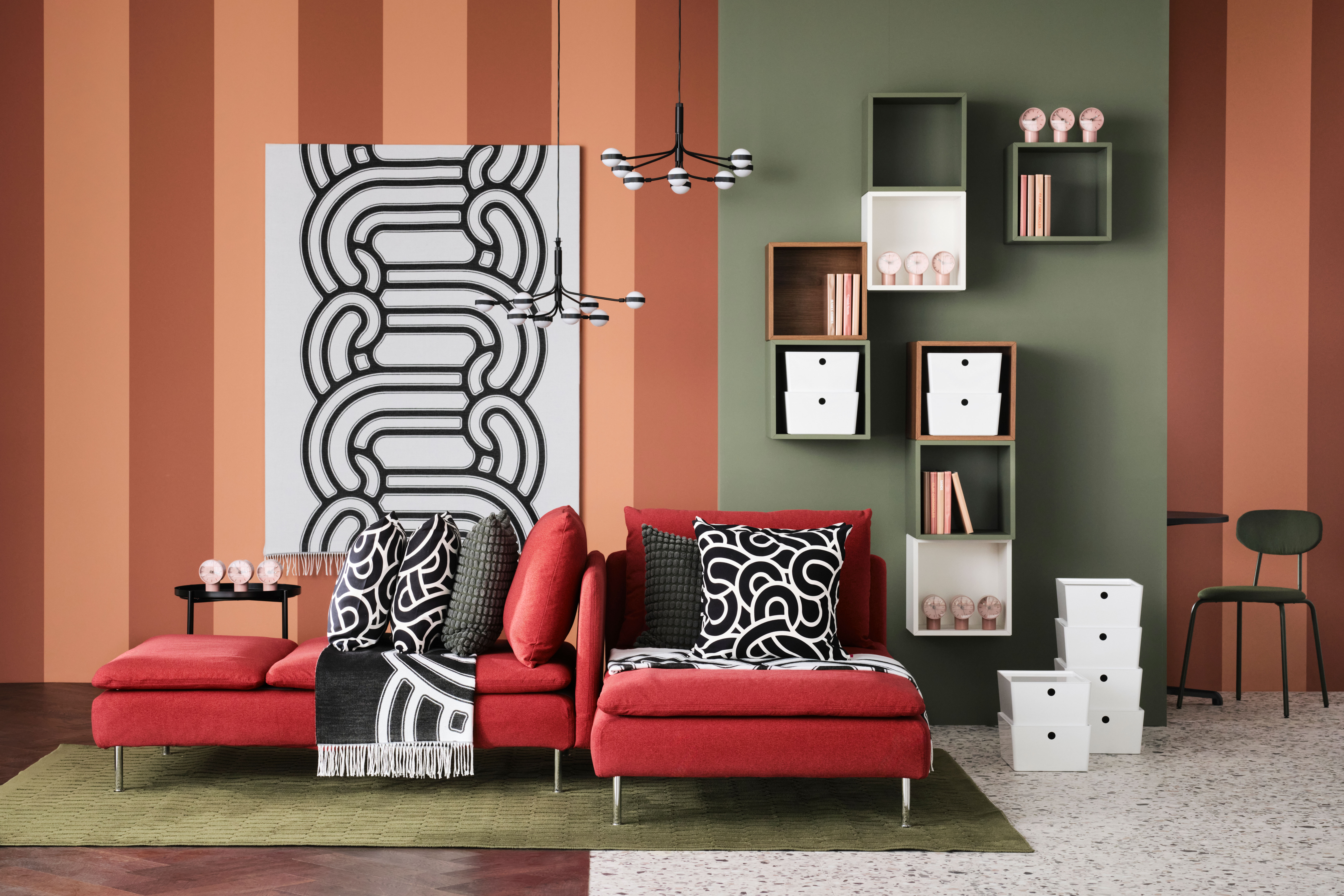 Ikea meets Japan in this new pattern-filled collection
Ikea meets Japan in this new pattern-filled collectionNew Ikea Sötrönn collection by Japanese artist Hiroko Takahashi brings Japan and Scandinavia together in a pattern-filled, joyful range for the home
By Rosa Bertoli
-
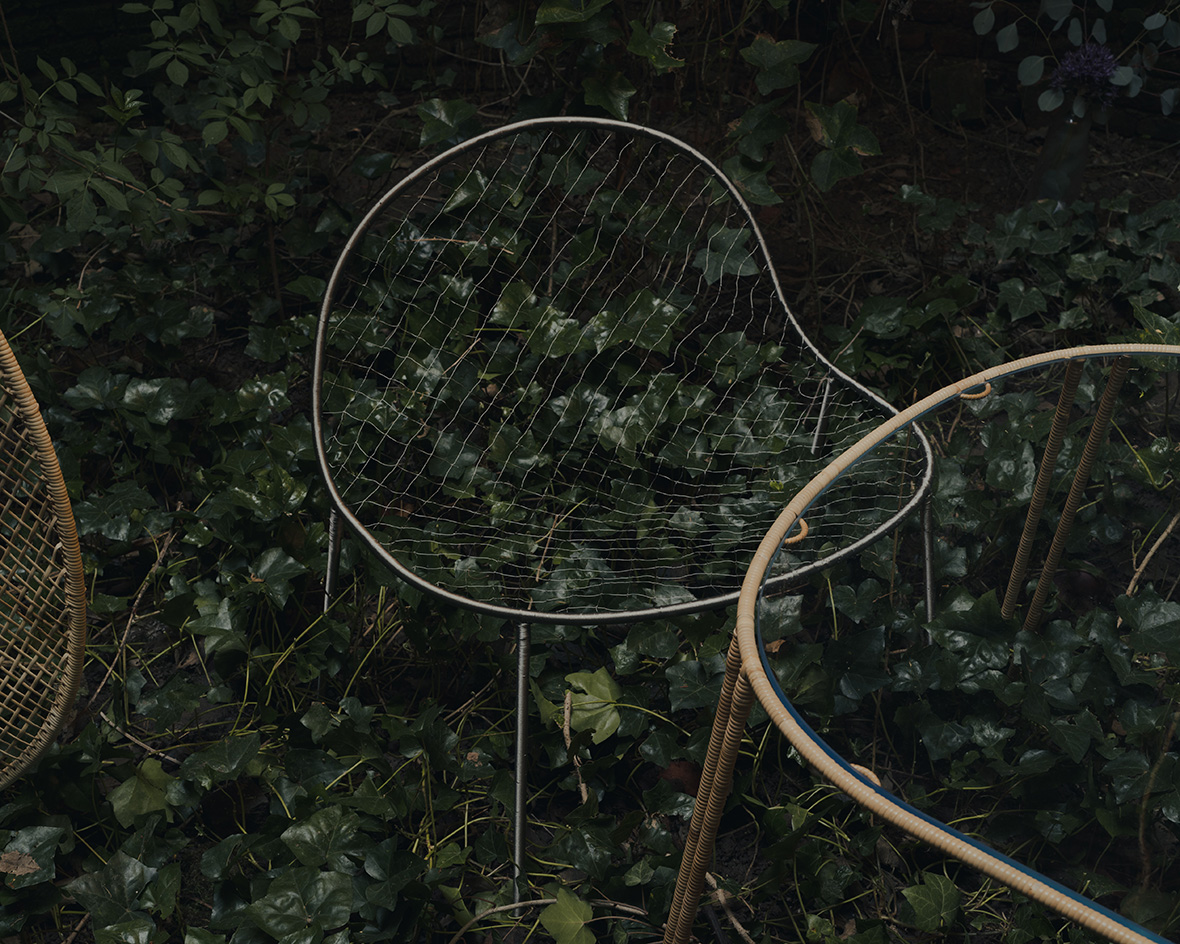 Junya Ishigami designs at Maniera Gallery are as ethereal as his architecture
Junya Ishigami designs at Maniera Gallery are as ethereal as his architectureJunya Ishigami presents new furniture at Maniera Gallery in Belgium (until 31 August 2024), following the series' launch during Milan Design Week
By Ellie Stathaki